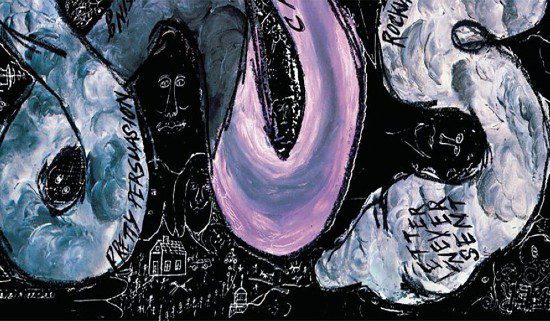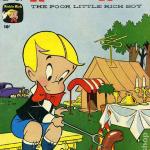I've got a bit of a quibble with a recent tendency I've noticed having to do with the way things like book sales or Facebook fans are used as a measure of popularity. Specifically I want to explore whether these measures can really be used to indicate the relative or comparative popular support for opposite views.
When some polarizing figure publishes a book, the sales of that book do provide one useful way of gauging the popularity of that figure or that point of view. Barring bulk purchases or some other mischief, if the polarizing figure's book sells 2 million copies, it's reasonable to assume that is a reliable measure of the author's support. Fair enough.
But say some less polarizing figure also publishes a book taking the opposite view and it doesn't sell anywhere near as well. Is that an indication that the opposite view has relatively less support?
That's one possibility. Generally, though, it's difficult to compare the two books head-to-head. One might have received a great deal more publicity than the other, might have more money or media power behind it, etc. It also may be the case that the more polarizing book generates more publicity and garners more attention because it is more provocative, more outlandish and more controversial.
It may even be the case that the more popular book is more popular because it is obviously and extravagantly wrong.
To explain what I mean there, let me revisit an illustration I used in an earlier post, the hypothetical case of the Anti-Missourians — people who claim not to believe in the existence of the state of Missouri.
The nonexistence of Missouri would not be an easy thing to believe in because it isn't true. In reality, Missouri does exist. The AntiMos must therefore be on guard at all times against the subversive presence of reality.
One never knows when or where some mention of the Show-Me State might next surface to threaten the fragile construct of disbelief in its existence. AntiMos can't watch ESPN lest they find themselves attacked by references to the Rams or to Albert Pujols. They can't watch C-SPAN due to its occasional references to a 100-member Senate. They can't read Mark Twain. They can't drive my commute south on I-95, lest they catch a glimpse of Frawley Stadium, home of the Kansas City Royals' single-A affiliate Blue Rocks. And they can't allow themselves more than a brief, fleeting glance at the American flag that flies over that stadium, lest a closer inspection reveals that it bears a heretical 50 stars.
What I'm trying to describe is the enormous amount of work — ceaseless, never-ending, exhausting work — that it requires to believe something counter to reality.
Believing in reality as it presents itself is much easier. Those who do accept the reality that Missouri exists don't have to put any effort into doing so at all. They can go for weeks at a time without ever giving it a second thought. Not only are they free to watch ESPN and C-SPAN, but they are free to do so without ever even noticing the many ways in which doing so reaffirms the existence of Missouri because, to them, its existence is neither remarkable nor controversial.
Now suppose two books are published arguing opposite sides of this Missouri "controversy." One book, I Have Seen the Show-Me State, offers a vigorous defense of the existence of Missouri. The other, The Missouri Myth, written by someone who claims to live on the Iowa-Arkansas border, argues that a shadowy conspiracy of cartographers, the liberal mainstream media and the Free Masons concocted the Big Lie of Missouri for nefarious purposes.
Who's going to buy the first book? Probably no one. No one who agrees with the author's thesis would have a need to purchase or read a book confirming something so obvious and self-evident. And no one who disagrees with the author's thesis could afford to risk reading such a book.
But The Missouri Myth will do pretty well. Every single anti-Missourian will buy a copy of this book. They more or less have to. They've been dying for just such a thing and here it is at last. Here, finally, is a book they know will be safe to read — a book they can read without the exhausting vigilance required by nearly every other volume. But more than that, this book promises to support them — to buttress their faltering beliefs with much-needed reinforcement.
Some of the anti-Missourians will devour this book, reading and re-reading it, memorizing passages and reverencing it like scripture. Others will buy it and cherish it without ever reading a page because they don't need to read it to feel its reassuring weight in their hand. It will be for them a talisman, a tangible thing they can hold or look at there on the shelf. It's physicality will reassure them, like a voice constantly whispering "You are right, you are right, there's no need to doubt."
Six months after both books are published there will be a series of articles examining the sales success of the one and the failure of the other. Those articles will presume that the sales figures for these books are a useful and accurate proxy for the comparative popularity of the books' respective viewpoints. They will thus conclude that the anti-Missourian view seems to be much more popular than the pro-Missourian view.
















